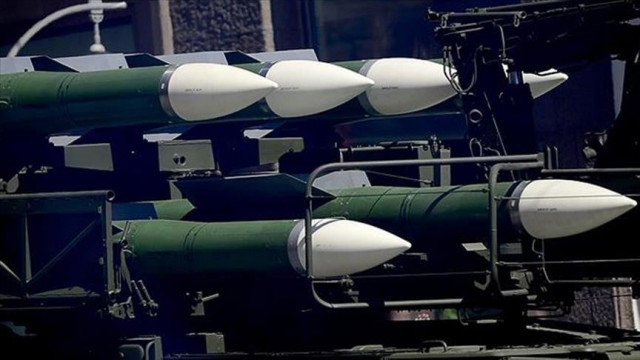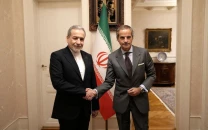Global nuke arsenals expected to grow for 1st time since Cold War: study
Russia, US together possess over 90% of all nuclear weapons, says Stockholm International Peace Research Institute

Global nuclear arsenals are expected to grow over the next decade for first time since the Cold War, according to an international study released on Monday.
The world's nine nuclear-armed states -- the US, Russia, Britain, France, China, India, Pakistan, Israel, and North Korea -- continue to modernise and expand their nuclear arsenals at a rate that will likely increase over the next decade, the Stockholm International Peace Research Institute (SIPRI) found in its newly released Yearbook 2022.
"There are clear indications that the reductions that have characterized global nuclear arsenals since the end of the cold war have ended," Wilfred Wan, a senior fellow at SIPRI, was quoted as saying in the publication.
Read more: Increasing nuke arsenals
All of the nuclear-armed states are expanding or upgrading their arsenals and their role in their military strategies, while also sharpening their nuclear rhetoric, said Wan, who is the director of SIPRI's Weapons of Mass Destruction Programme.
"This is a very worrying trend," he added.
According to SIPRI, Russia and the US together possess over 90% of all nuclear weapons, while the other seven countries are either developing or deploying new weapons systems.
Also read: The growing threat of nukes
China, particularly, is in the course of substantially expanding of its nuclear arsenal, with satellite images indicating the construction of over 300 new missile silos, asserted the institute.
Accordingly, it added, several additional nuclear warheads are thought to have been assigned to operational forces of Chinese military last year, following the delivery of new mobile launchers and a submarine.



















COMMENTS
Comments are moderated and generally will be posted if they are on-topic and not abusive.
For more information, please see our Comments FAQ